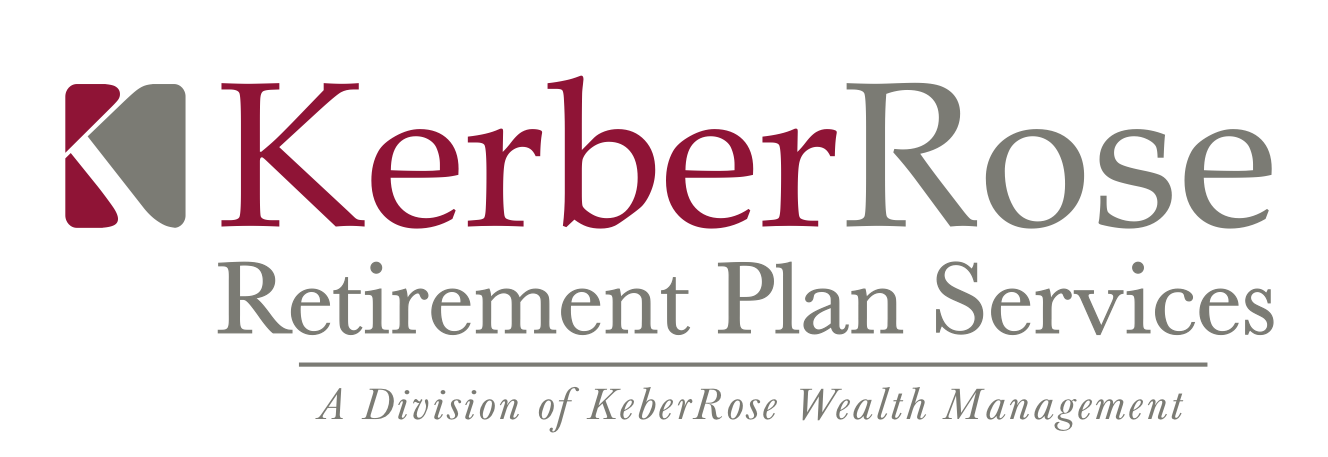If your plan has not been recently audited, it is likely only a matter of time before the Internal Revenue Service (IRS) or the Department of Labor (DOL) comes knocking. If/when you are notified of an audit, early preparation can help streamline the process, keep the investigation narrow, and avoid potential financial penalties and interest.
What is an appropriate interest rate for plan loans?
Student Loan Repayment Program
On August 17, 2018, the IRS issued private letter ruling 201833012 (the PLR). The PLR addressed an individual plan sponsor’s desire to amend their retirement plan to include a program for employees that were making student loan repayments. The form of this benefit would be an employer non-elective contribution (SLR contribution).
2022 Retirement Plan Limits
2021 Retirement Plan Limits
Plan Documents… Save or Purge?
It’s That Time Again! Back-to-School for Fiduciaries
Beware of the IRS and DOL: Four Red Flags They Seek on Form 5500
The Form 5500 is an ERISA requirement for retirement plans to report and disclose operating procedures. Advisors use this to confirm that plans are managed according to ERISA standards. The form also allows individuals access to information, protecting the rights and benefits of the plan participants and beneficiaries covered under the plan.
Another Way to Save: Tax Credit for Plan Participants
Benefits Compliance Implication for the Current Coronavirus Crisis
As the world grapples with the global outbreak of COVID-19, many employers have questions about their benefits compliance obligations pertaining to employees who may be affected by the virus. While we will attempt to address at a high level some of the issues that have been brought to our attention, it’s important to note that employers should consult with legal counsel about any specific legal obligations they may have in conjunction with their business plans.
Is Your Turnover Rate Routine? What You Need to Know About Partial Plan Terminations
A partial plan termination is presumed by the IRS to occur when 20 percent or more of a company’s employees are no longer eligible to participate in the plan in a determined span of time (typically one plan year, but it can be other spans of time based on facts and circumstances). Routine turnover during the year is generally not considered a partial plan termination.
Proposed DOL Rule Makes Electronic Delivery the Default Method for Plan Participant Required Notices
• Electronic delivery has become the norm in the 17 years since the Department of Labor promulgated its safe harbor rules for electronic delivery of required notices under ERISA. It is estimated that eliminating paper notices altogether across the industry would reduce administrative costs by $750 million annually.
• According to the US Census Bureau, almost 80 percent of households now have a desktop, laptop and/or a hand held device, plus an internet subscription. This compares to 1984 when fewer than 10 percent of households had a computer of any type.
• Current law mandates delivery of required notices by a means “reasonably calculated to ensure receipt.” In 2002, the DOL issued two safe harbors known as “wired at work” and “affirmative consent” describing the circumstances under which electronic delivery meets this standard. Following these safe harbors is not a legal requirement but has been industry practice.
• Under the “wired at work” safe harbor, notices may be delivered electronically to participants on company email. For employees not on company email and former employees, consent is required. In practice, this has meant electronic delivery for active employees on company email and the U.S. mail for everyone else.
• The new rule will permit notifying participants how they can access required notices on line. The proposed rule includes standards for maintaining websites.
• Participants will still have a right to paper notices upon request. Once a participant is notified by paper of the right to receive paper all future notices may be electronic.
• The rule is in proposed form. But it appears that going forward the industry standard will be to direct participants to a website where they can view required notices. There will be delivery of a paper notice only at the onset of participation to inform participants of their right to paper notification, or if this is then affirmatively requested by the participant.
Keeping in Compliance: IRS Tips for Plan Sponsors
As an employer, you’re responsible for keeping your company’s retirement plan in compliance at all times. Additionally your plan document should be reviewed on an annual basis and administered accordingly. The IRS offers useful tips for plan sponsors, helping you to stay compliant, informed and prepared to provide the best possible retirement plan for your employees – here are some highlights.
Repay Student Loans or Save in a Retirement Plan? Why Not Both?
Hardship Withdrawals – The Internal Revenue Service Issues Proposed Regulation Reflecting Statutory Changes
Hey Joel - What are the risks for late 5500 filings?
Records and Their Expiration Dates
Beware of the IRS and DOL: Four Red Flags They Seek on Form 5500
Student Loan Repayment Program Update
Are You Prepared for an IRS Audit?
The Internal Revenue Service’s (IRS’s) Employee Benefit Audit Program is used to audit and enforce. The IRS’s emphasis, with respect to defined contribution plans is on compliance with the requirements of the Internal Revenue Code (the Code), the plan’s tax qualification and administration of all plan documents. In the event of noncompliance with regulations, the IRS can impose taxes, penalties and interest.



















